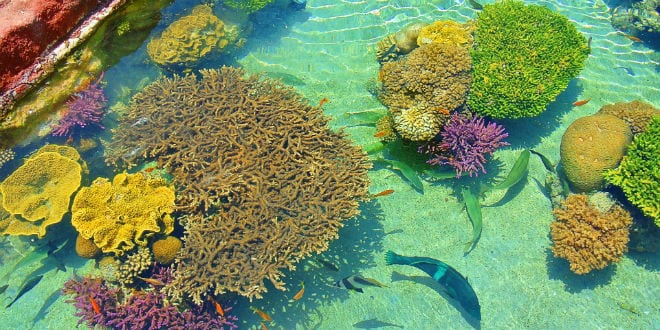Devastating oil spills usually occur suddenly, disgorging millions of barrels of raw petroleum into the sea, killing wildlife and endangering the health of humans.
Yet a team of international researchers from Israel, the US, Switzerland and Germany are warning in the journal Frontiers in Marine Science (under the title: “A closing window of opportunity to save a unique marine ecosystem”) that the danger began five years ago and that only if immediate action is taken, there may still be time to prevent the imminent humanitarian and ecological disaster.
A massive leak of over one million barrels of oil – four times greater than the notorious Exxon Valdez tanker spill in 1989, is anticipated shortly in the Red Sea off the coast of Yemen, where the Safer floating storage and offloading unit is in the final stages of decay. The Safer has been stranded and deteriorating since 2015, giving the world the most advanced warning ever of a major oil spill. But this unique opportunity is being squandered, says the team, which includes Prof. Maoz Fine of Bar-Ilan University in Ramat Gan near Tel Aviv.
In the just-published policy brief, the authors warn that immense devastation to the health and livelihoods of millions of people living in half-a-dozen countries along the Red Sea coast will be guaranteed if the Safer’s decay is not addressed immediately.
The potential spill will also affect the entire international community by degrading a critical global resource – the coral reefs of the northern Red Sea and Gulf of Aqaba, which are considered to be among the last reef ecosystems in the world to thrive beyond mid-century.
Over the last five years, as the Safer has languished on its mooring, there have been multiple warnings of the risk of its degradation. But despite the most advanced warning ever for an oil spill, no concrete steps have been taken to prevent it. Recently there have been reports of minor oil leakage from the vessel. Winter is the worst time for a major oil spill because winter currents disperse oil more widely.
The Houthis, a political and armed movement in northern Yemen, control access to the Safer tanker, but the have repeatedly denied UN requests to board the vessel. The UN International Maritime Organization has sent experts to develop a risk impact analysis and contingency plans to improve management of emergency response operations in the event of a spill from the Safer. But without access to the storage vessel, they are unable to take the necessary steps to prevent a spill. Recently, such access was granted, and it is up to the UN to act quickly to bring the Safer crisis to an end, the international team wrote.
“Immediate international intervention is needed to prevent an imminent humanitarian and ecological disaster,” asserted Dr. Karine Kleinhaus of the School of Marine and Atmospheric Sciences at Stony Brook University, a co-author of the policy brief. “Emergency action must be taken by the UN and its International Maritime Organization to remove the oil, despite political tensions in the region,” she added.
Looking beyond the imminent danger posed by the Safer, the authors write that with 4.8 million barrels of crude oil and refined petroleum products passing through the Red Sea each day, a regional strategy must be drafted for leak prevention and containment that is specific to the Red Sea’s unique ecosystems, unusual water currents and political landscape.
“Our field must have a clear sense of the serious implications of an eminently preventable environmental disaster, both for human
populations and for a unique ecosystem that is a precious global resource. We must also clearly communicate the options that still
remain to address this impending, massive oil spill, as well as the more general policies that can partially address the risk of future oil spills in the Red Sea,” the scientists wrote.
“Coral reefs line almost all 4,000 kilometers of the Red Sea’s coastlines and also surround multiple islands within it, so that oil spills in any part of the Sea threaten these valuable ecosystems,” noted Fine of Bar-Ilan University’s Goodman Faculty of Life Sciences and the Interuniversity Institute for Marine Science, who co-authored the policy brief. “Action must be taken now. The window of opportunity to save a unique marine ecosystem is quickly closing.”
The team also included by Prof. Hezi Gildor of the Hebrew University of Jerusalem; Dr. Yael Amitai, of the Israel Oceanographic & Limnological Research Institute; Prof. Anders Meibom, of the Ecole Polytechnique Fédérale de Lausanne in Switzerland; and Prof. Christian
Voolstra of the University of Konstanz in Germany.




